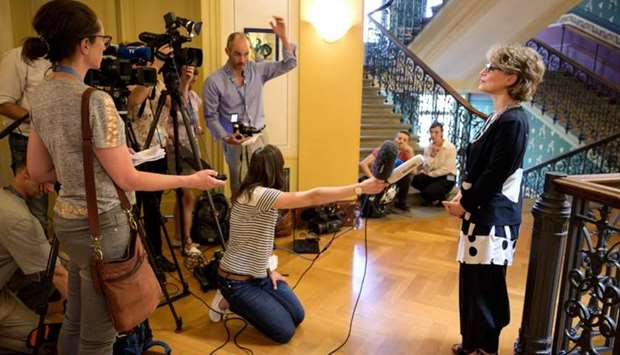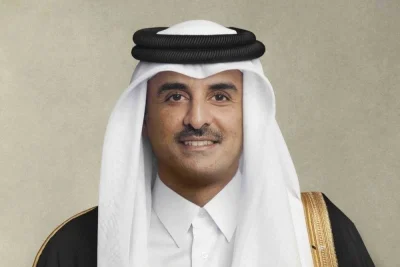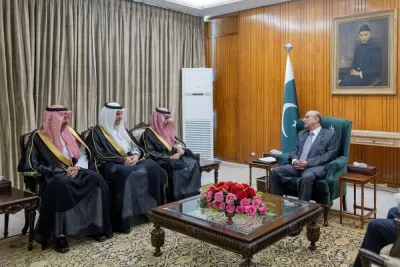Saudi Arabia has sought to move on from the scandal triggered by journalist Jamal Khashoggi's murder, but a UN expert's report implicating its crown prince has heaped pressure back on the kingdom, analysts say.
UN special rapporteur Agnes Callamard's report, released on Wednesday, insists there is "credible evidence" to warrant further investigation and financial sanctions against Crown Prince Mohamed bin Salman over Khashoggi's murder last October.
The 101-page document, which details the dissident's murder by Saudi agents at the country's Istanbul consulate, has cast a renewed spotlight on the case just as the de facto ruler appeared to be emerging from the scandal.
The revelations, including audio transcripts showing the Saudi agents involved referring to Khashoggi as a "sacrificial animal", also piled pressure on Western allies to suspend arms sales to the kingdom.
The allegations, strongly rejected by Riyadh, are also likely to increase anti-Saudi sentiment in the US Congress despite the prince enjoying President Donald Trump's backing.
On Thursday, the US Senate backed a resolution opposing President Donald Trump's plan to complete weapons sales to Saudi Arabia.
The vote was 53-45 for the first of 22 resolutions of disapproval the Senate was to consider related to Trump's decision last month to sidestep the congressional review process and complete more than $8bn in military sales to Saudi Arabia, the United Arab Emirates and other countries.
Last month, the president bypassed the usual process of seeking a congressional green light for the sales, citing risks from Iran.
"A new crisis cycle is open," Joseph Bahout, non-resident fellow at Carnegie Endowment, said on Twitter.
"Another round of international embarrassment for (Saudi Arabia) is starting now."
Britain Thursday said it would suspend issuing new Saudi licences for the sale of arms that might be used in the kingdom's four-year bombing campaign in Yemen.
The decision was not directly linked to the report, but came after a British court ordered the government to "reconsider" the sales because of their humanitarian impact.
The UN expert's report is unlikely to challenge Prince Mohamed's position at home, where his grip on power "appears absolute", said Hussein Ibish, a scholar at the Arab Gulf States Institute in Washington.
"The bigger concern, I have no doubt, is the growing anti-Saudi sentiment in US Congress," he said.
"As long as (the Saudis) have strong relations with the White House they will probably be okay, but the growing tensions with Congress are a very bad sign," said Ibish.
"Riyadh's relationship with Washington is not optional from a Saudi point of view. It's essential."
While Callamard's report did not offer definitive evidence linking Prince Mohamed to Khashoggi's murder, it said it was "inconceivable" such a large-scale operation could be implemented without him being aware.
The report quoted audio recordings, apparently picked up by Turkish listening devices, of Saudi officials discussing dismembering his body even before Khashoggi entered the consulate to collect a Saudi document allowing him to wed his Turkish fiancee.
Khashoggi's remains have so far not been found.
The report said there was evidence that the crime scenes, including the consulate, had been "thoroughly, even forensically, cleaned" following the killing, indicating a cover up.
Saudi Arabia has placed 11 unnamed suspects on trial for the murder.
But the report said the murder involved a 15-man team that flew to Istanbul on two jets in a mission that required "significant government coordination, resources and finances".
The Saudi minister of state for foreign affairs, Adel al-Jubeir, has dismissed the report, saying that it was riddled with "clear contradictions" and "unfounded allegations".
Diplomats from the UN Security Council's permanent members — Britain, China, France, Russia and the United States — as well as Turkey are allowed to attend the trial proceedings of the 11 suspects, Jubeir said.
The proceedings are held entirely in Arabic, diplomatic sources have told AFP.
The diplomats are not allowed to bring interpreters and are usually summoned at short notice, the sources added.
The incident had tarnished the reputation of Prince Mohamed.
The kingdom had been attempting to turn the page on it, in hopes of winning back foreign investment and resetting ties with Western allies.
The report could however "increase the reputational risks for US entities doing business with Saudi Arabia", Ryan Bohl, from the US geopolitical think tank Stratfor, said.
Prince Mohamed also faces overseas critics, including some Saudi citizens who have sought exile in Western capitals.
"This UN report will put winds into their sails and give them an opportunity to build up their public support," Bohl said.
The 101-page document, which details the dissident's murder by Saudi agents at the country's Istanbul consulate, has cast a renewed spotlight on the case just as the de facto ruler appeared to be emerging from the scandal.
The revelations, including audio transcripts showing the Saudi agents involved referring to Khashoggi as a "sacrificial animal", also piled pressure on Western allies to suspend arms sales to the kingdom.
The allegations, strongly rejected by Riyadh, are also likely to increase anti-Saudi sentiment in the US Congress despite the prince enjoying President Donald Trump's backing.
On Thursday, the US Senate backed a resolution opposing President Donald Trump's plan to complete weapons sales to Saudi Arabia.
The vote was 53-45 for the first of 22 resolutions of disapproval the Senate was to consider related to Trump's decision last month to sidestep the congressional review process and complete more than $8bn in military sales to Saudi Arabia, the United Arab Emirates and other countries.
Last month, the president bypassed the usual process of seeking a congressional green light for the sales, citing risks from Iran.
"A new crisis cycle is open," Joseph Bahout, non-resident fellow at Carnegie Endowment, said on Twitter.
"Another round of international embarrassment for (Saudi Arabia) is starting now."
Britain Thursday said it would suspend issuing new Saudi licences for the sale of arms that might be used in the kingdom's four-year bombing campaign in Yemen.
The decision was not directly linked to the report, but came after a British court ordered the government to "reconsider" the sales because of their humanitarian impact.
The UN expert's report is unlikely to challenge Prince Mohamed's position at home, where his grip on power "appears absolute", said Hussein Ibish, a scholar at the Arab Gulf States Institute in Washington.
"The bigger concern, I have no doubt, is the growing anti-Saudi sentiment in US Congress," he said.
"As long as (the Saudis) have strong relations with the White House they will probably be okay, but the growing tensions with Congress are a very bad sign," said Ibish.
"Riyadh's relationship with Washington is not optional from a Saudi point of view. It's essential."
While Callamard's report did not offer definitive evidence linking Prince Mohamed to Khashoggi's murder, it said it was "inconceivable" such a large-scale operation could be implemented without him being aware.
The report quoted audio recordings, apparently picked up by Turkish listening devices, of Saudi officials discussing dismembering his body even before Khashoggi entered the consulate to collect a Saudi document allowing him to wed his Turkish fiancee.
Khashoggi's remains have so far not been found.
The report said there was evidence that the crime scenes, including the consulate, had been "thoroughly, even forensically, cleaned" following the killing, indicating a cover up.
Saudi Arabia has placed 11 unnamed suspects on trial for the murder.
But the report said the murder involved a 15-man team that flew to Istanbul on two jets in a mission that required "significant government coordination, resources and finances".
The Saudi minister of state for foreign affairs, Adel al-Jubeir, has dismissed the report, saying that it was riddled with "clear contradictions" and "unfounded allegations".
Diplomats from the UN Security Council's permanent members — Britain, China, France, Russia and the United States — as well as Turkey are allowed to attend the trial proceedings of the 11 suspects, Jubeir said.
The proceedings are held entirely in Arabic, diplomatic sources have told AFP.
The diplomats are not allowed to bring interpreters and are usually summoned at short notice, the sources added.
The incident had tarnished the reputation of Prince Mohamed.
The kingdom had been attempting to turn the page on it, in hopes of winning back foreign investment and resetting ties with Western allies.
The report could however "increase the reputational risks for US entities doing business with Saudi Arabia", Ryan Bohl, from the US geopolitical think tank Stratfor, said.
Prince Mohamed also faces overseas critics, including some Saudi citizens who have sought exile in Western capitals.
"This UN report will put winds into their sails and give them an opportunity to build up their public support," Bohl said.



